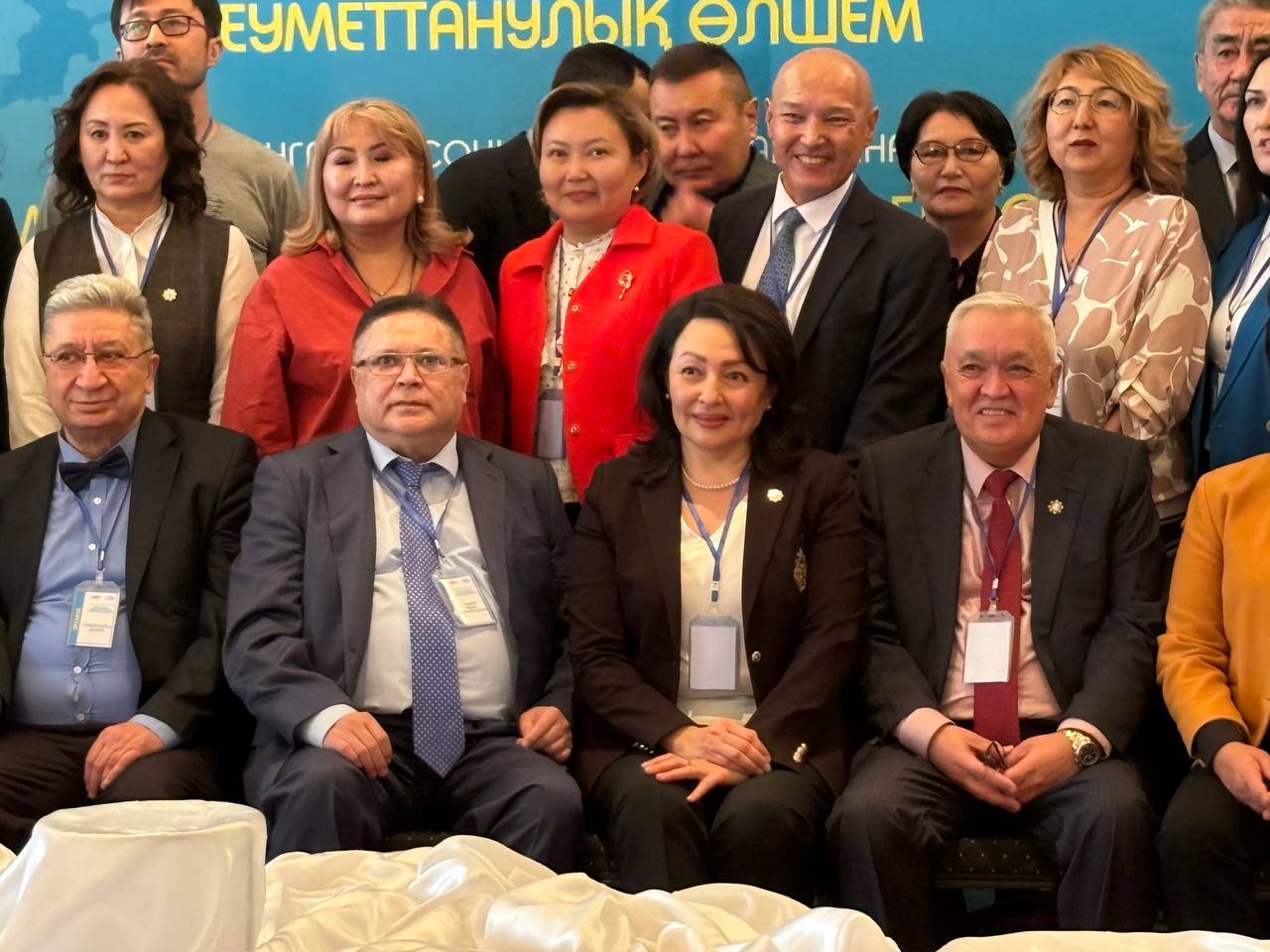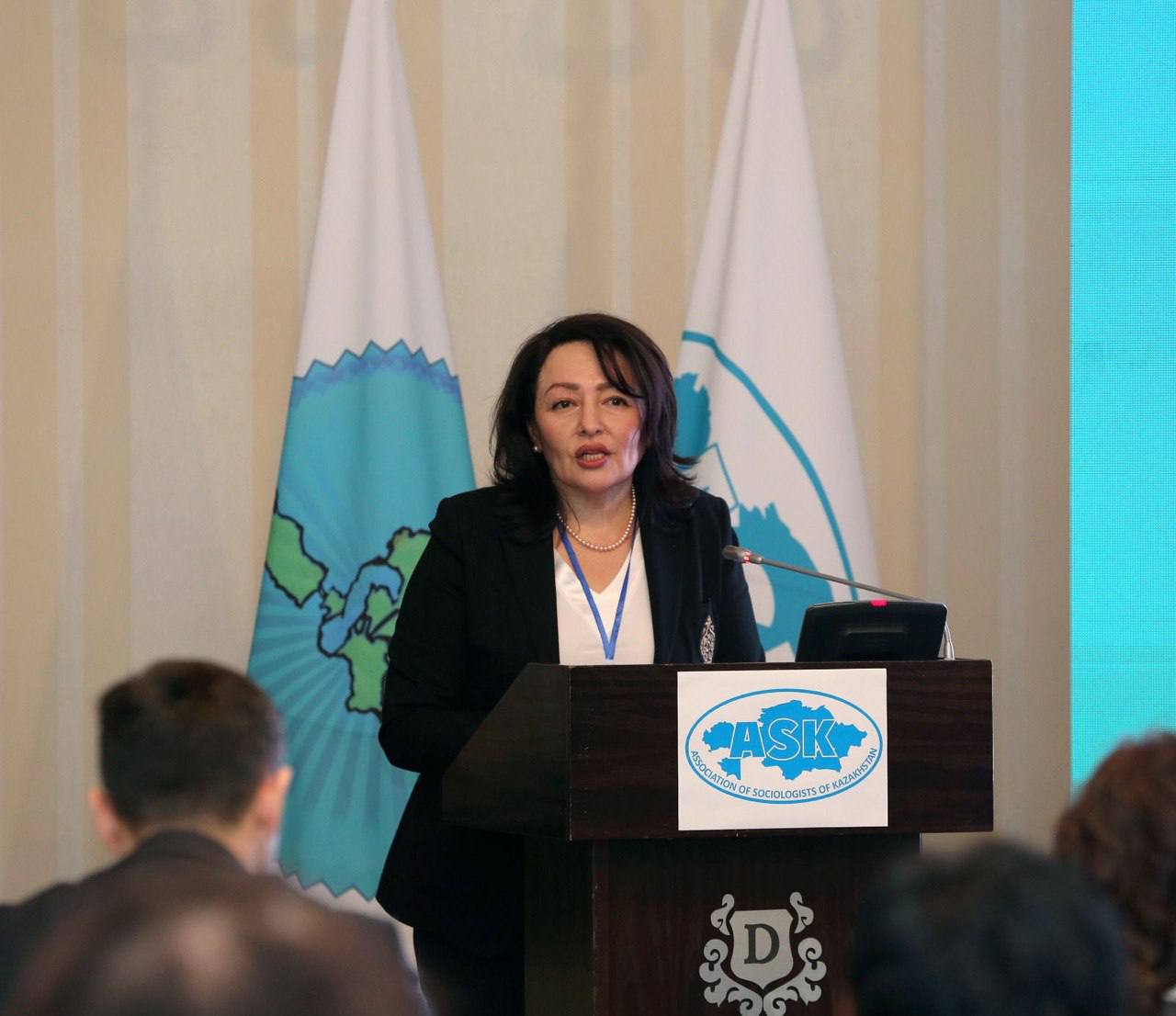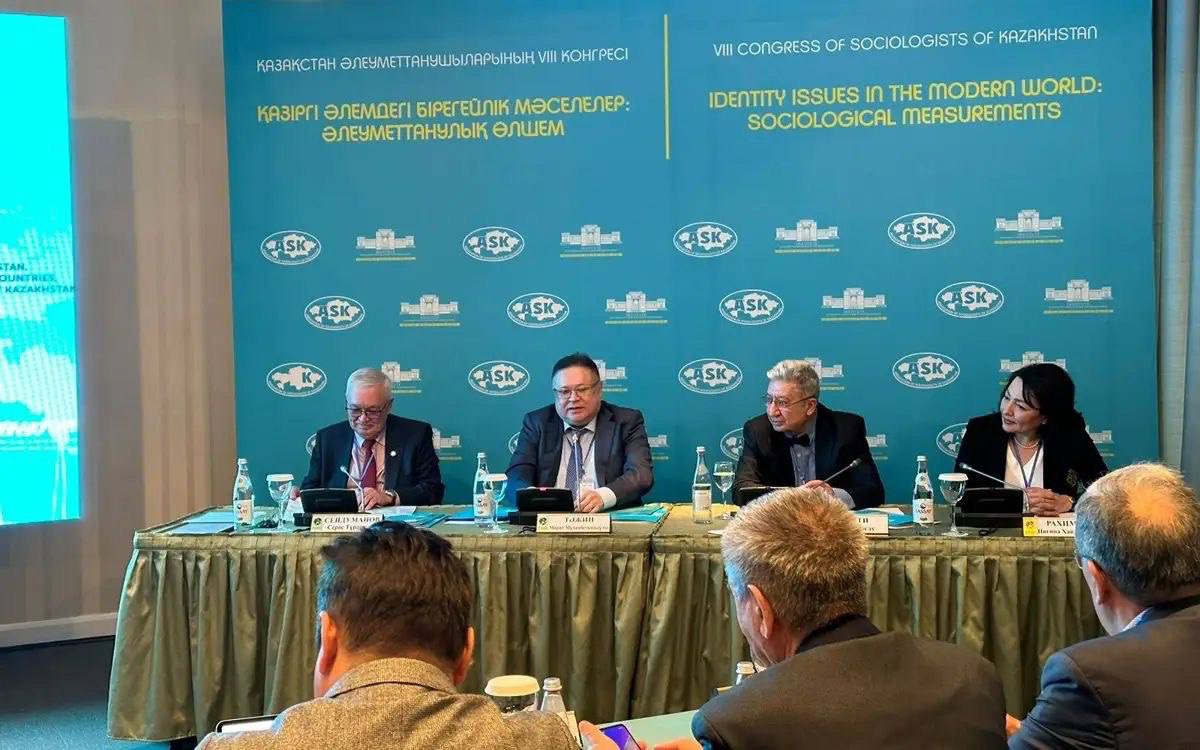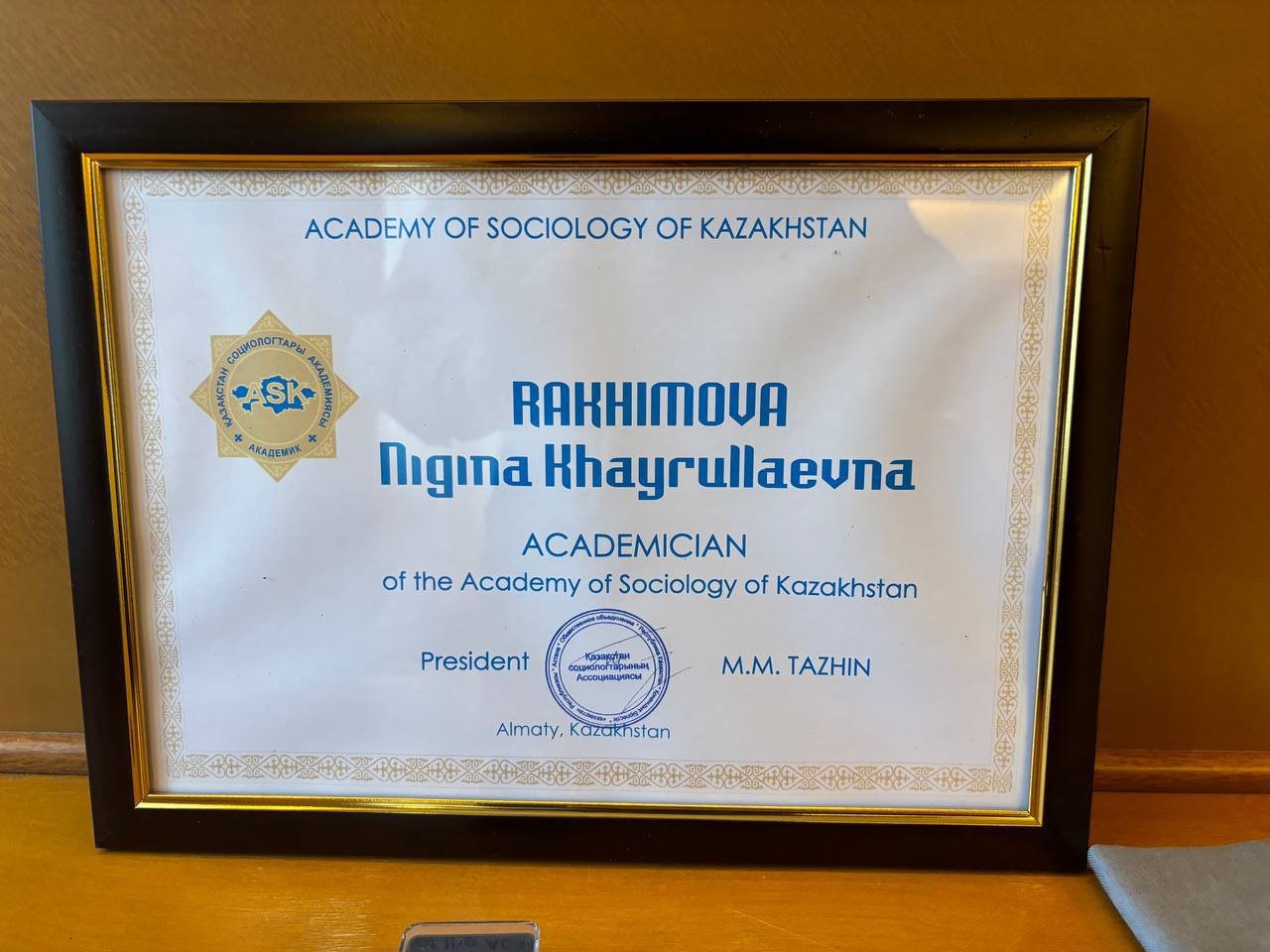25.10.2024
248
On October 23, 2024, two important scientific events took place in the city of Almaty: the 8th Congress of Sociologists of Turkic-speaking Countries and the 8th Congress of Sociologists of Kazakhstan. The congress was held on the theme "Problems of Self-Knowledge in the Modern World: A Sociological Analysis." The forum served as a significant platform for dialogue and collaboration between leading sociologists and observers.
The primary goal of these congresses was to create a platform for knowledge exchange between specialists from different countries in the field of sociology, including traditional principles, practical experience, and advanced research.
During this event, current issues related to identity were discussed, particularly the challenges society faces amid globalization and socio-cultural changes.
Participants discussed sociological approaches to studying identity, the role of migration, ethnic and cultural factors, as well as the impact of global processes on self-knowledge and the strengthening of identity in modern society.
Organized by the Association of Sociologists of Kazakhstan, the congress brought together experts to exchange knowledge and experience, allowing for an exploration of the theme of social identity in different countries in the region through the lens of sociological research and a discussion of how globalization and migration processes influence the formation of society.
As the event participants noted, further development of Kazakhstan sociology requires the creation of a new generation of qualified specialists capable of responding to the challenges of the times. In this regard, new schools and educational programs for observers and analysts are actively being established in Kazakhstan.
Aygul Zabirova, a researcher at the Institute of Strategic Studies of Kazakhstan, highlighted the key role of civic identity in the process of self-knowledge, emphasizing the importance of studying personality. According to her, it is crucial for sociologists to understand how people formally associate themselves with Kazakhstan and how they perceive their lives.
Aygul Zabirova also emphasized the importance of considering citizens' personal opinions in the study of identity. Sociological research makes it possible to identify several levels of identity, which helps better understand the process of its formation.
During the event, Rakhimova Nigina Khayrullayevna, Director of the Republican Center for the Study of Public Opinion "Ijtimoiy Fikr" of the Republic of Uzbekistan, gave a presentation titled "Socio-Cultural and Civic Identity of Uzbekistan's Citizens: Interests and Awareness" (based on public opinion survey results). The report highlighted that amid the rapid reforms and changes occurring worldwide, the importance of sociological research is becoming increasingly relevant. Sociology, as a science about individuals and society, not only records the current state of public sentiment but also offers solutions to strengthen civic identity within the social context.
An important historical event also took place at the congress: Rakhimova Nigina Khayrullayevna, Director of the Republican Center for the Study of Public Opinion "Ijtimoiy Fikr" of the Republic of Uzbekistan, was awarded the honorary title of academician of sociologists of Kazakhstan. This award recognized her significant contribution to the development of social sciences and cooperation across various projects. Granting Rakhimova Nigina the honorary title of academician by the Association of Sociologists of Kazakhstan symbolizes the contribution of Uzbek scholars to the development of modern sociology.
At the end of the congress, participants emphasized the uniqueness of the topics discussed and the need to continue scientific dialogue in ongoing research. The final results are consolidated on an interdisciplinary approach to studying self-knowledge issues and cooperation between sociologists of Turkic-speaking countries. Special attention was given to the prospects of training a new generation capable of working in complex conditions. The congress concluded on a high note, opening new horizons for scientific research and international collaboration.





